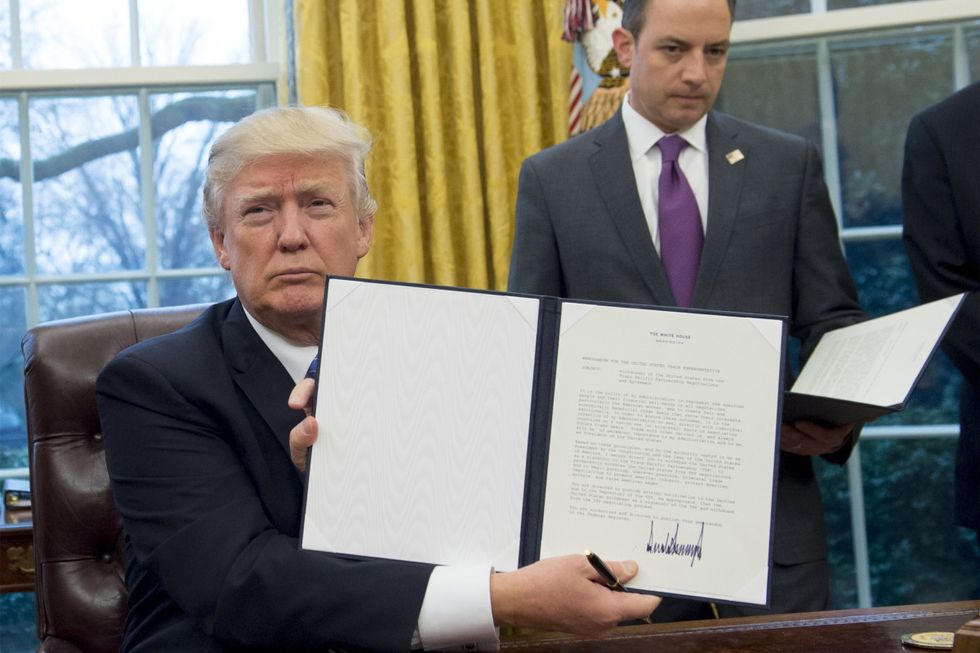You are considering buying a car--a 1953 white Chevrolet Corvette. But then, you stop and ponder how in the world you will get even a third of the money needed to purchase the vehicle. You first fell in love with the corvette upon observing it in its display in San Diego, California. Nevertheless, on your trip to Mexico, you realize that the same car—your dream car—is a few thousand dollars cheaper. What do you do?
Buy the cheaper car of course. This is an ideal example of the role that the North American Free Trade Agreement (NAFTA) plays in the United States. Established in 1994 in response to the creation of the European Union, NAFTA opened up trade and opportunities for Canadians, Americans and Mexicans alike. NAFTA made trading easier between North American countries by getting rid of tariffs and taxes on imports and exports.
If NAFTA has moderately increased the U.S.’s economic growth in the past decade, why does President Trump want to get us out of it? Economists are aware that trading is not only about producing, but exporting products of quality that are able to compete in the global market. For instance, anyone with the opportunity of purchasing a 1953 white Chevrolet Corvette at a cheaper price will do so. The only difference is who will receive the money for the product: Mexican or American workers? Trump wants to create more jobs by producing more American products in the U.S. He wants to bring back the industries and make fine goods more expensive by imposing high taxes (and prohibiting imports by taxing them in order to make American products more competitive and desired by the consumer.)
NAFTA states that cheaper goods = more trade = economic growth. Nevertheless, after the creation of NAFTA, hundreds of American corporations began to move abroad where profit is high and standard of living/wages are low. What this means is that the GDP of the country is likely to increase, but most of the jobs that belonged to Americans have left.
President Trump signed an order to withdraw from the Trans-Pacific Partnership (TPP) last Friday, it is reported that he will make immense changes to NAFTA in the upcoming months as well. What the United States could look like without TPP and NAFTA is definitely not a blissful scene, but a huge backlash against globalization and world trade agreements. Most importantly, such acts could further damage our relationship with China (the U.S.’s largest goods trading partner) and the rest of the world.



















